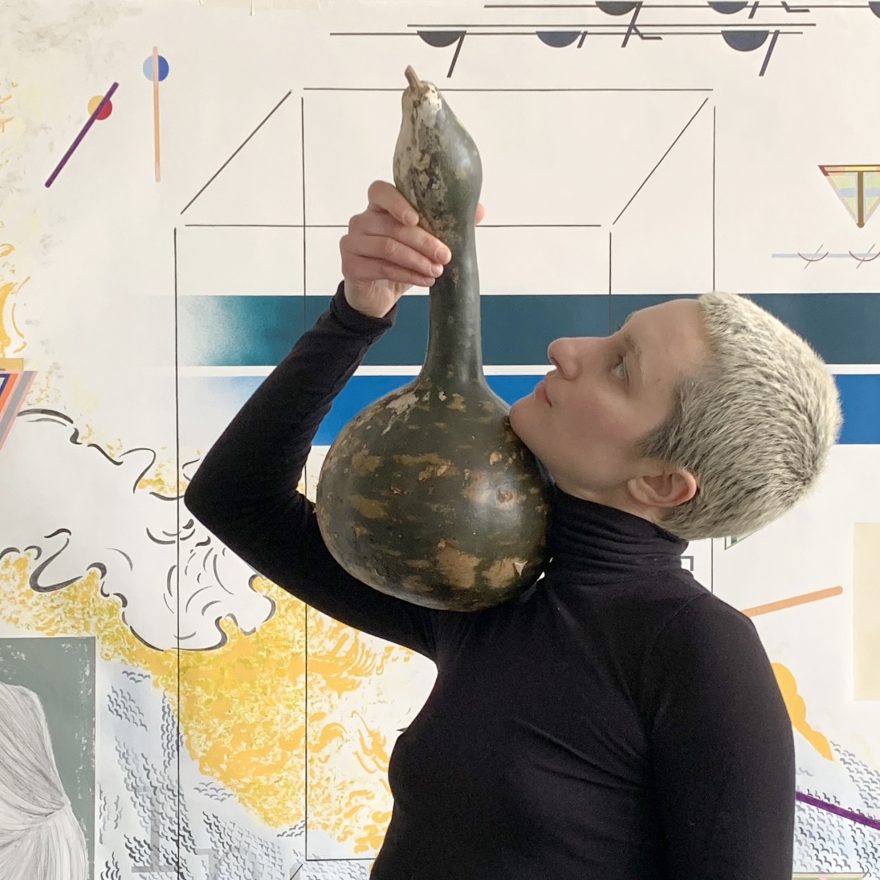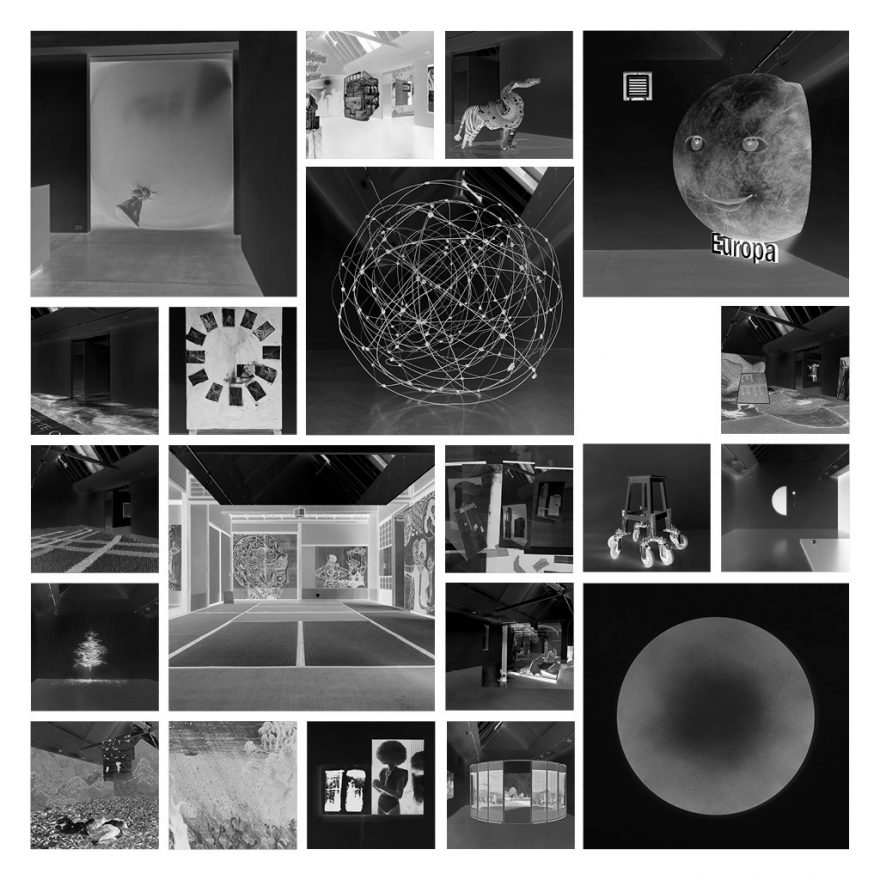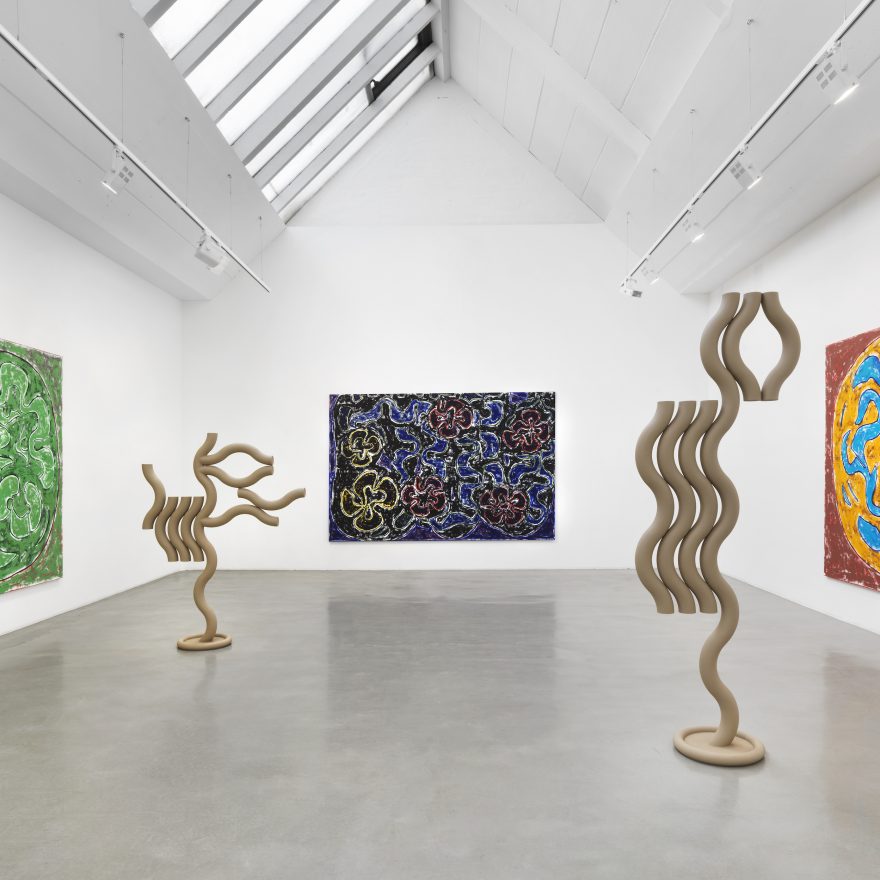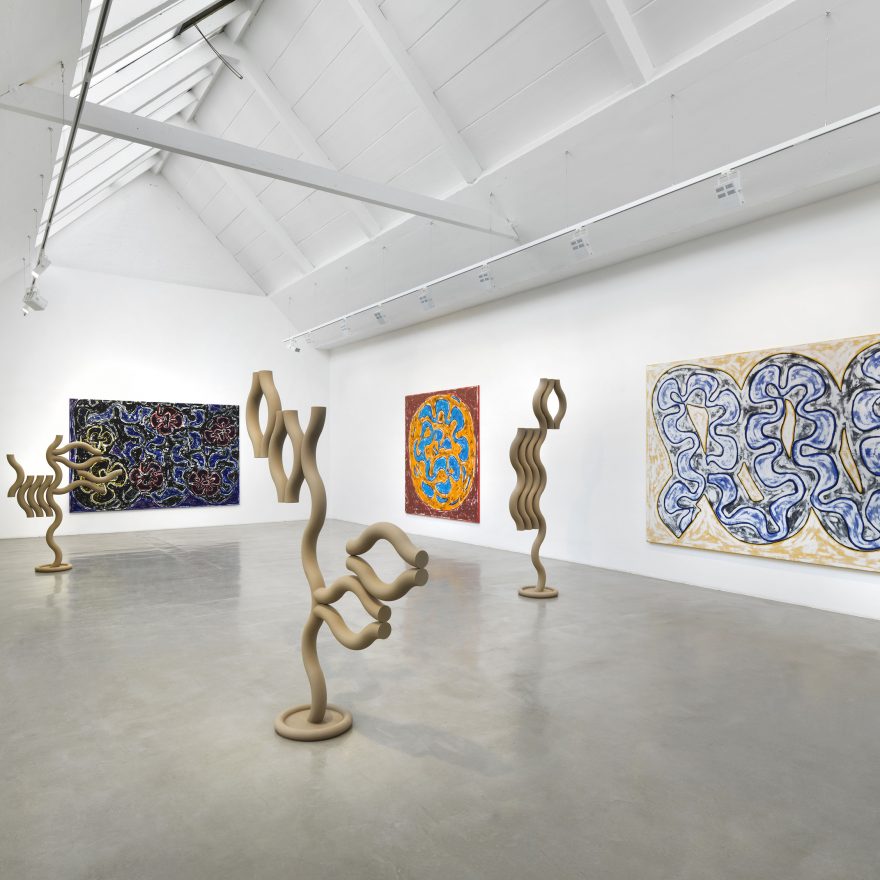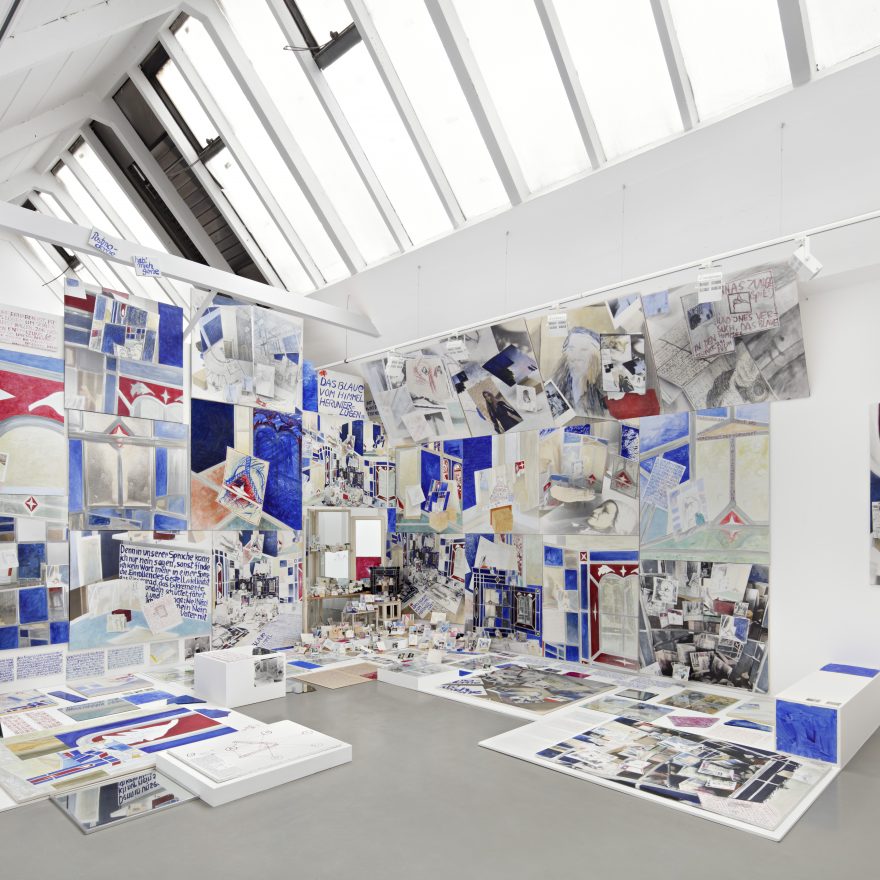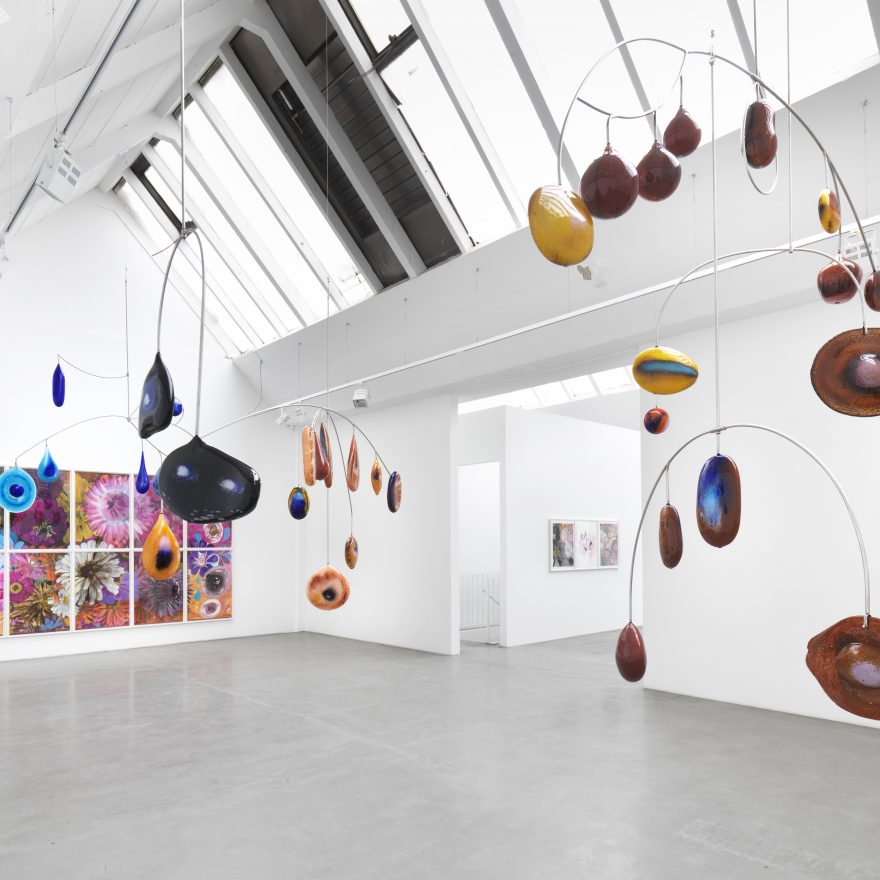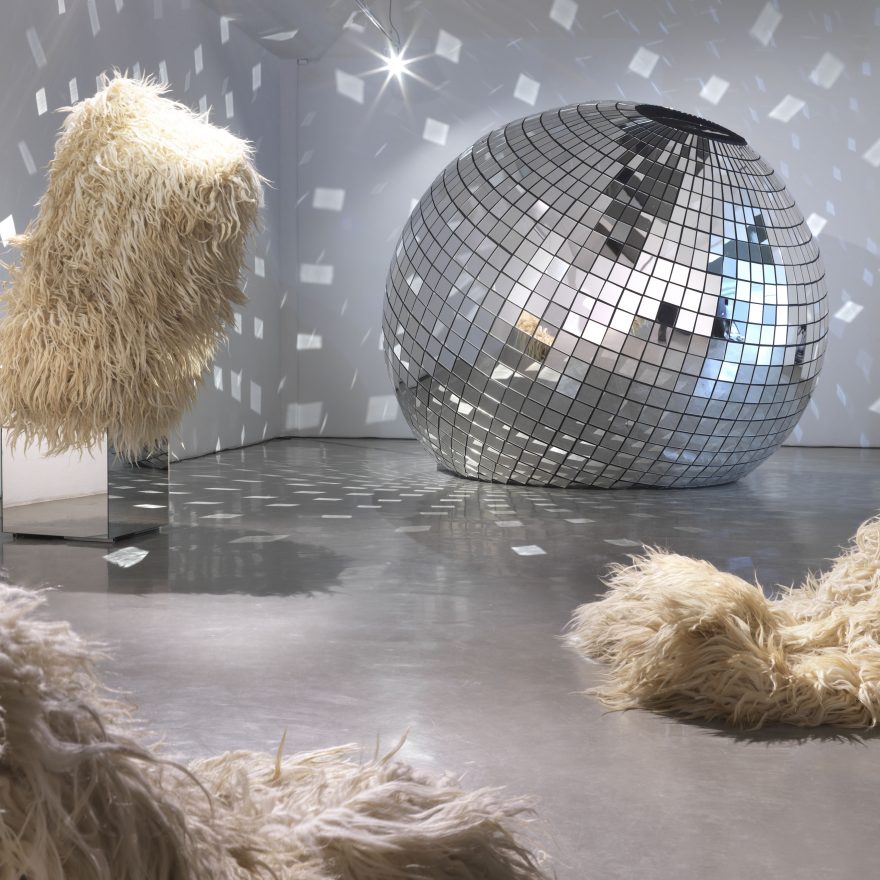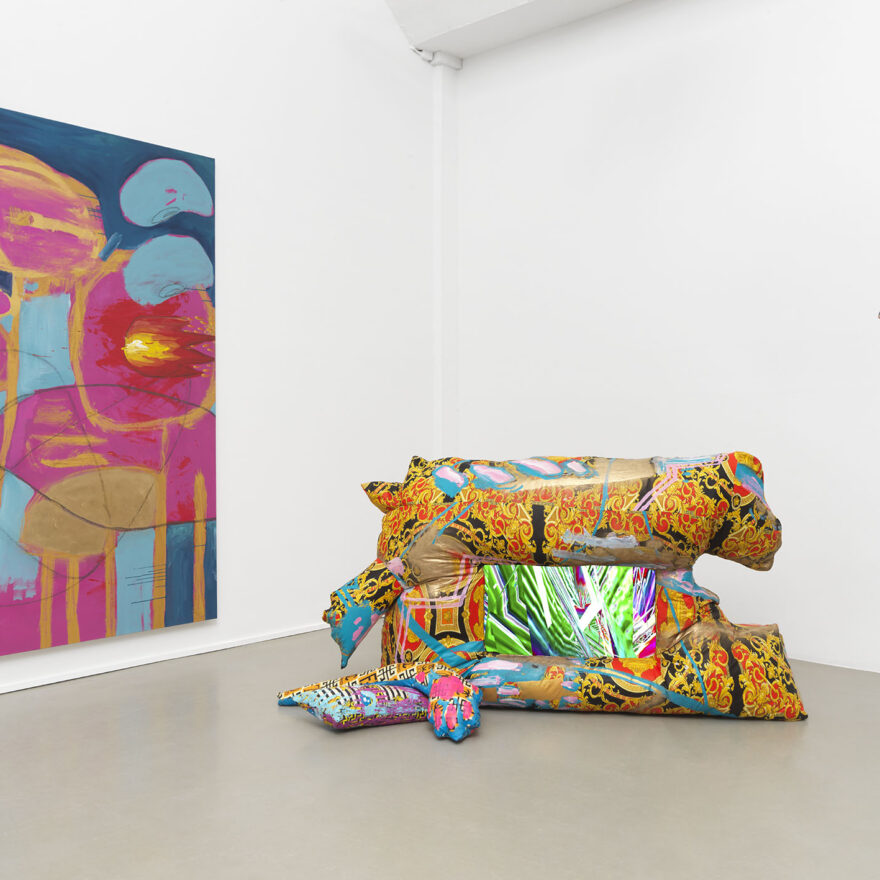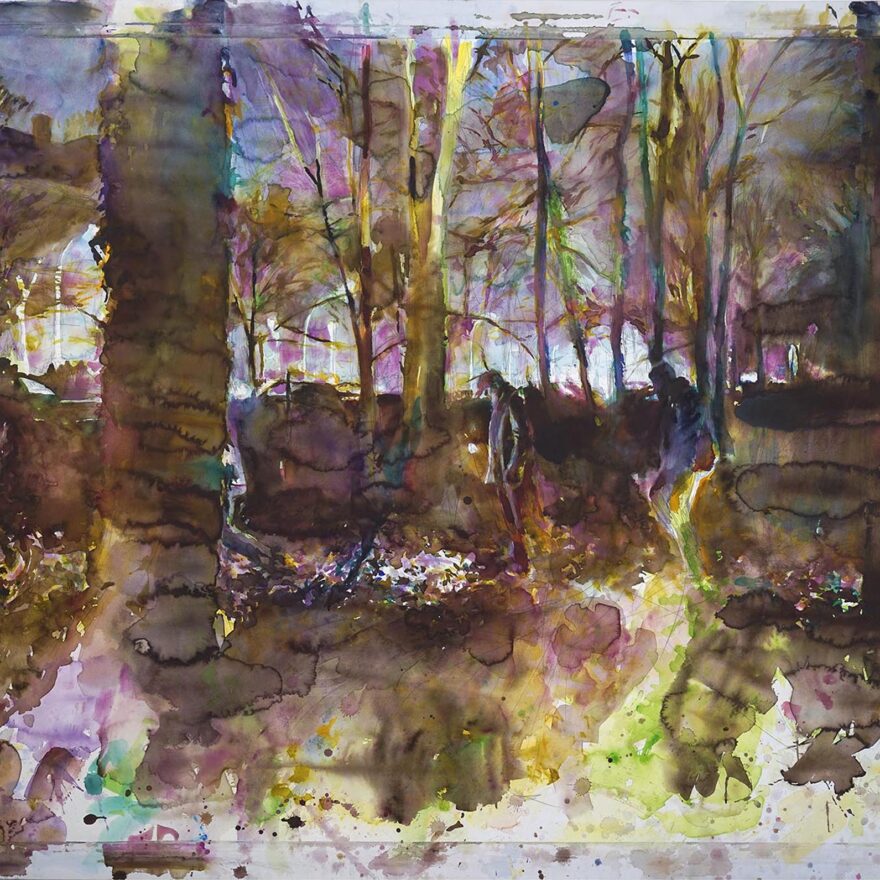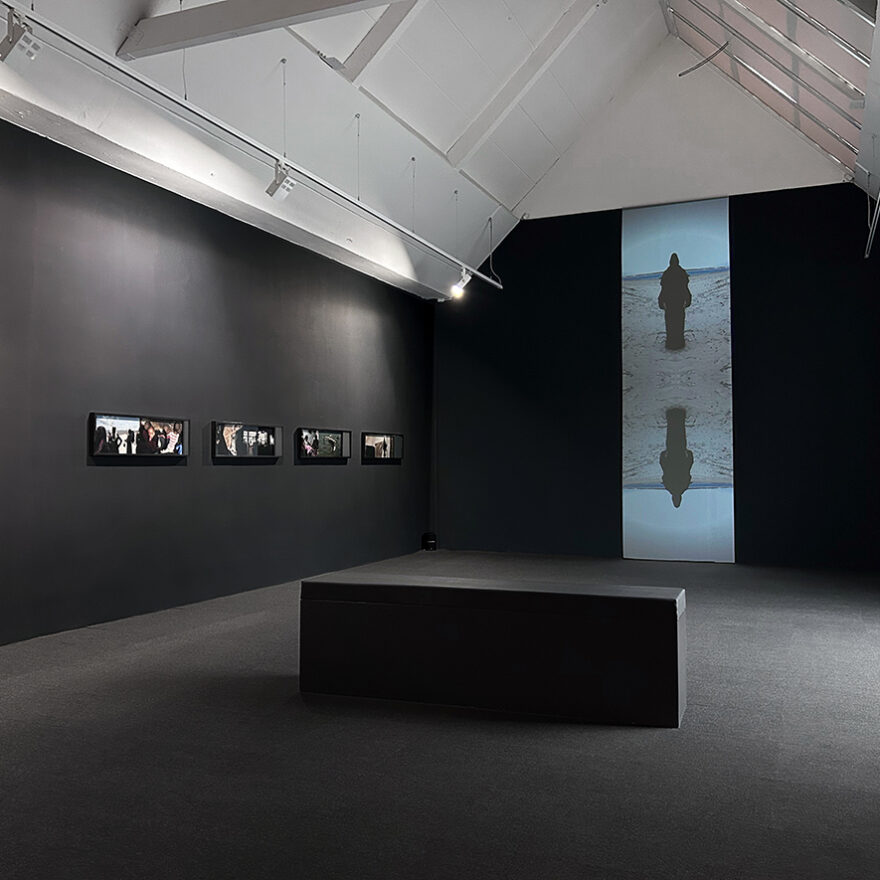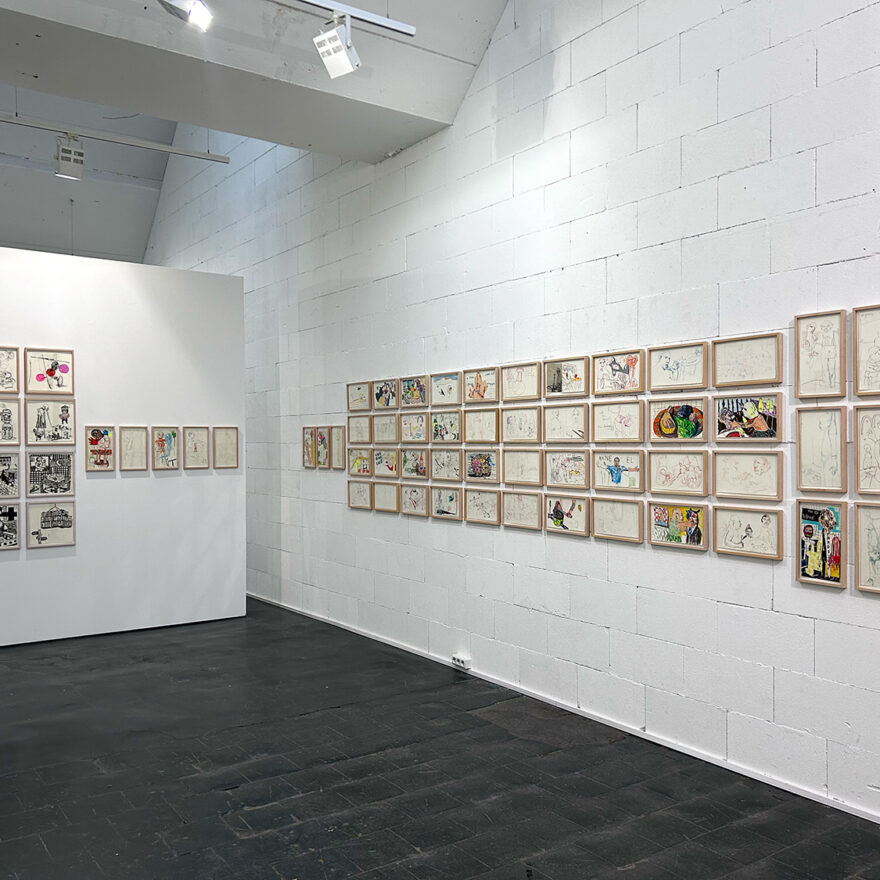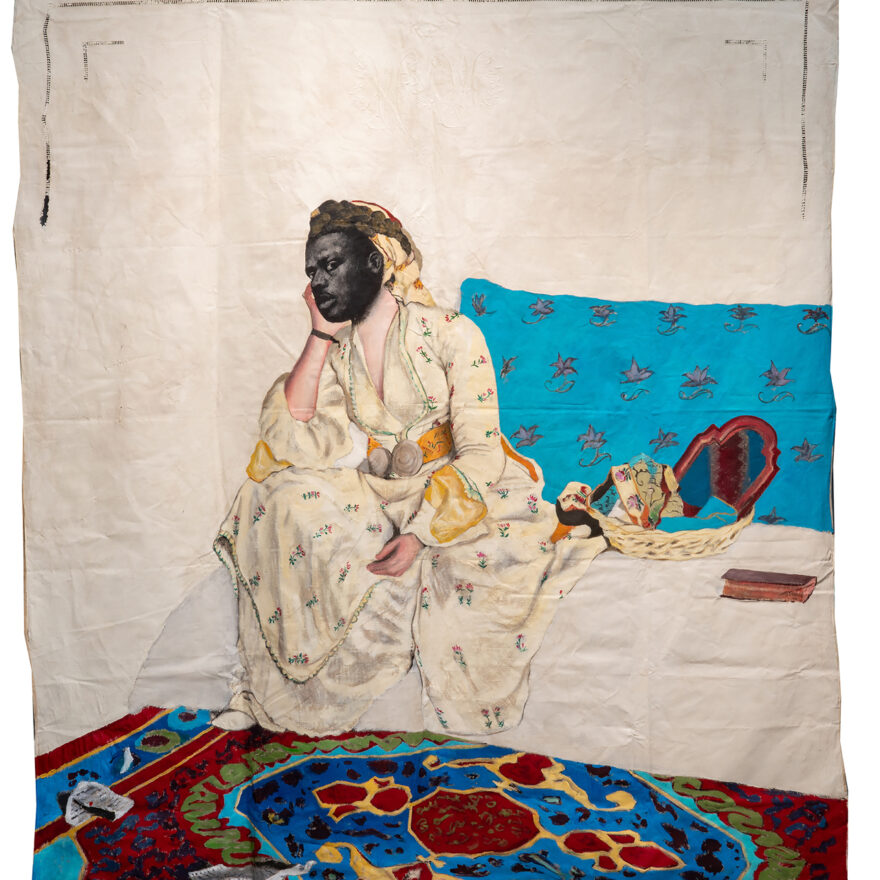Roméo Mivekannin
2 MAY until 21 JUN 2025
Opening – 2 MAY 2025, 6-9 pm
For this year’s Gallery Weekend, Galerie Barbara Thumm is proud to present a series of works by Roméo Mivekannin (b. 1986, Bouaké, Côte d’Ivoire), inspired by Orientalist masterpieces and conveyed in his distinctive, thought-provoking style. Renowned for his evocative reinterpretations of key works from the European art history canon, Mivekannin draws from 17th- to 19th-century paintings associated with the Orientalist movement, which was widely popular in Europe at the time.
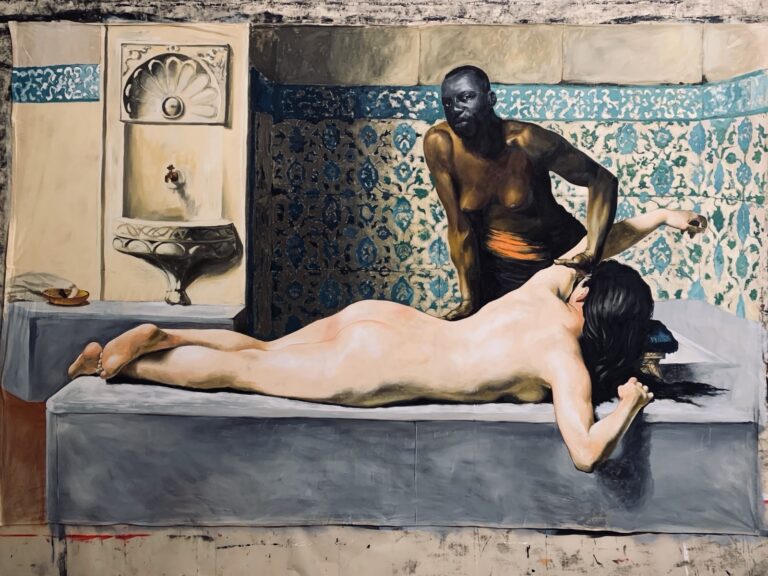
Roméo Mivekannin, After Édouard Debat-Ponsan, le massage: scène de Hammam, 2024, Acrylic and elixir bath on canvas.
Courtesy of the artist and Galerie Barbara Thumm
Mivekannin reexamines the works of European male painters like Jean-Léon Gérôme or Eugène Delacroix, among others, who depicted the “Orient” through highly theatricalized scenes—harems, hammams, and other imagined settings—portraying women and subjects as eroticized objects of desire or symbols of subjugation. By engaging in an act of “citation” or “visual referencing,” Mivekannin meticulously replicates the ornate details of the original paintings, including their references to Islamic architecture, geometric patterns, floral motifs, and sumptuous textiles. However, he disrupts the captivating imagery with a bold subversive act: replacing the faces of the subjects with his own black-and-white self-portrait, gazing directly at the viewer. This direct gaze transforms the viewer into an active participant, compelling them to question the narratives of power and domination inherent in these depictions.
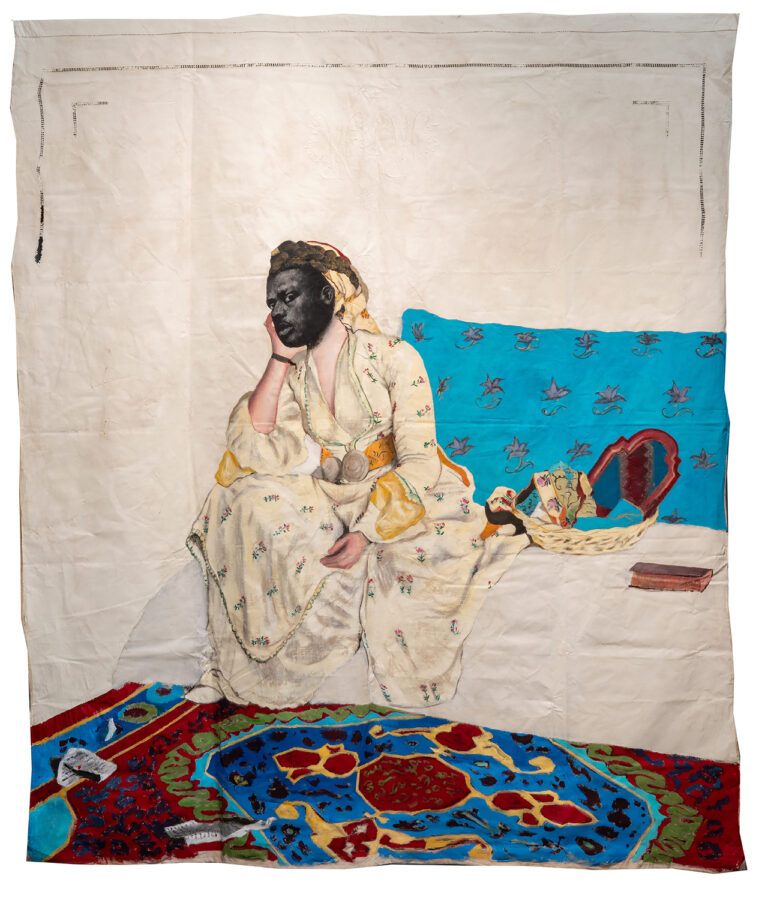
Roméo Mivekannin, Woman in Turkish dress, after Jean-Etienne Liotard, 2023, Acrylic and elixir bath on canvas.
Courtesy of the artist and Galerie Barbara Thumm
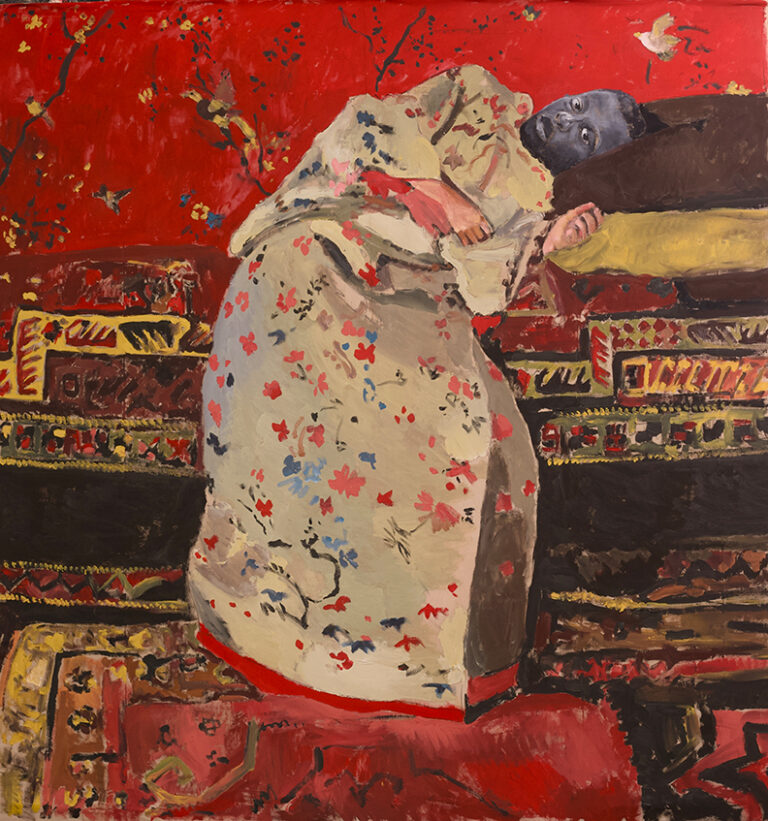
Roméo Mivekannin, Kimono blanc after George Hendrik Breitner 2023, Acrylic and elixir bath on canvas.
Courtesy of the artist and Galerie Barbara Thumm
“Mivekannin creates compositions that confront European iconography, reimagining classical paintings (…) His canvases, like palimpsests, bear various layers of content beyond the visual, as he uses old bedsheets he has soaked in elixir baths, following voodoo practices—a spiritual tradition from the Kingdom of Dahomey.”
Exhibition “Human in Motion,” Galerie Barbara Thumm, June 8 – August 3, 2024
Mivekannin’s free-hanging canvases carry profound material and spiritual resonance. Created on old bedsheets, soaked in elixir baths informed by voodoo rituals rooted in the Kingdom of Dahomey (modern-day Benin), his works are imbued with layers of cultural and ancestral meaning.

